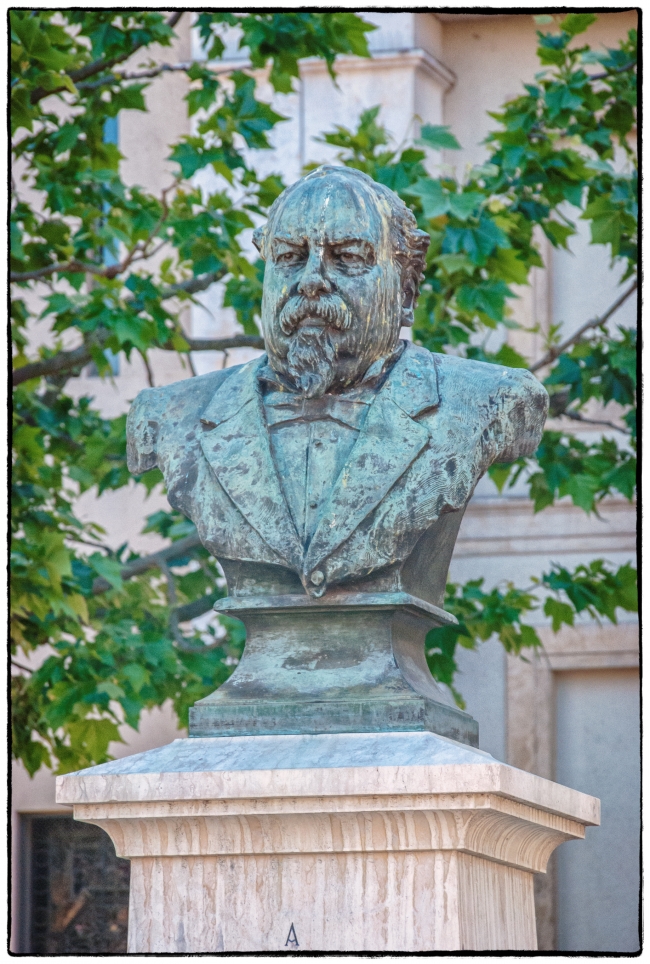According to the “Tribune de Geneve” (In “1848 Les Vautier conquièrent Carouge la lime à la main“, translated from the original French:
In 1848 a lime factory was founded in 1848 in Carouge by the father of Moïse Vautier.
…
The Rue Vautier perpetuates the name of this family on the very premises where the factory stood. It ceased to exist in the early 1980s. Its most famous owner was Moïse Vautier (1831-1899), whose bust stands in front of Sainte-Croix church. He was the great man of the family, a state councillor with an exceptionally long career, elected for the first time in 1861 until his death in 1899 during his final term. Four decades in business, under the colors of the powerful Radical Party of James Fazy, of which Vautier was one of the most ardent defenders.
From his years in St. Gallen, where his father sent him to study German, the young Moses returned with the brilliant idea of a radical guard called the “Fruitiers d’Appenzell”.
…
In his 1899 obituary the “Journal de Geneve” revisits the less glamorous role of the “Fruitiers”: “On election days, they do not hesitate to use violence against opponents, to destroy their ballots, or to substitute for them radical ballots, and to secure by these unscrupulous means the success of their party. We do not know what was the responsibility of Vautier in these scandals. In any case he lost nothing of his popularity. ”
In 1861, James Fazy’s influence over his troops was so strong that Moses Vautier, freshly elected to the Conseil d’Etat, had to resign with his radical colleagues as a sign of solidarity with Fazy, who did not want to go alone.
…
Geneva State Counselor, Federal State Counselor, Moïse Vautier was active in Geneva (including Carouge) as well as in Berne. He has left the memory of a citizen full of warmth and good-nature. He is among the fathers of the Leopard’s Circle (the one seen on the Coat of arms of Carouge), an institution created to bypass the requirement to close the cafes after 11 pm. A measure imposed in the late 1880s by the new conservative majority.
By creating their private circle at the Berthod café (Café de la Bourse), at the Place du Marché, Moïse Vautier, his sons and their notable friends and merchants, were granted the right to extend their parties as much as they wish . “As the lights of the ‘terraces’ and coffee shops went out in Carouge and Geneva, the party continued, behind the shutters of the Bourse” (René-Louis Piachaud, “Carouge”, 1936).
Taken with my Son-in-Law’s Nikon, D80 and Sigma 18-200mm f3.5-f6.3 lens.

